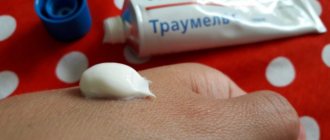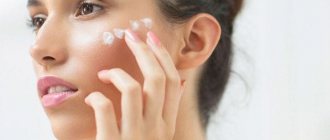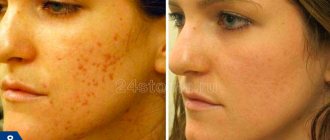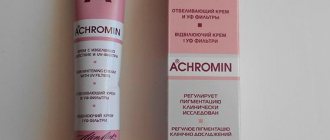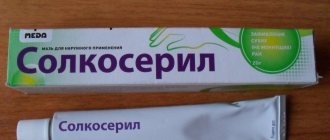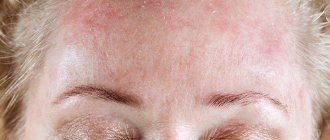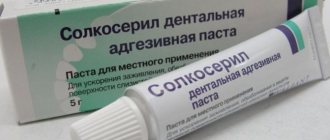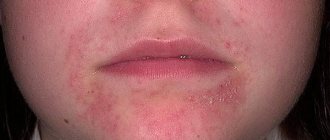Sulfur is one of the most important elements because it is involved in the construction of the human body. This element is necessary for life. Determines health status and appearance.
It is becoming increasingly popular in cosmetics due to its beneficial effect on the skin and regeneration processes. It is thanks to sulfur that a person’s skin looks healthy, hair is strong and shiny, and the circulatory and nervous systems work effectively.
Helps fight acne and seborrhea. Lack of the mineral causes keratosis and hair loss. Negatively affects the condition of the skin and nails.
Acne sulfur in human history
At first, it was believed that the benefits of sulfur for acne were proven only in 1949. Several later studies in the 1950s confirmed this.
But we do know that sulfur has been used in skin care for thousands of years. There are documented stories of Romans bathing in warm water filled with sulfur. This is how they dealt with acne symptoms.
The ancient Egyptians used sulfur in various ointments to treat eczema and acne almost 5,000 years ago. Traditional Chinese medicine also mentions this beneficial mineral in skin ointments, which was known more than 2000 years ago.
Since the 1950s, sulfur has been added to various foams for application directly to problem skin.
It retains its worldwide popularity in acne treatment products, although it has fallen out of fashion for several years. Nowadays, sulfur can be found in sulfur-containing oils, ointments, masks, talkers, and more. Fortunately, many manufacturers of medicinal cosmetics have been able to reduce the unpleasant odor of their products.
It is generally used as a treatment for problem skin, but not as a primary treatment as it often causes dryness and irritation. Some patients cannot tolerate these side effects.
To understand why sulfur is such a popular skin treatment, we need to determine how effective and safe it is?
Firstly, sulfur against acne is effective because even when applied topically, it easily kills bacteria.
Secondly, it is a known keratolic because it gently removes the top layer of skin along with dead cells, thereby revealing a fresh layer of flawless skin. Many cosmetologists praise this mineral as a natural exfoliant.
Opinions of doctors and cosmetologists
Reviews and opinions of doctors and cosmetologists regarding the anti-aging effect of sulfur ointment are skeptical. This is due to the fact that the drug is not intended to eliminate wrinkles and stop the aging process; accordingly, it has not undergone appropriate tests, and the effectiveness of its action has not been scientifically proven.
However, if early skin aging is caused by inflammation and metabolic disorders, the medicine can actually eliminate existing dermatological problems and improve appearance. To obtain a positive result, it is recommended to carry out treatment in courses, the duration of each of which should not exceed 10-14 days.
The medication can be used to treat dermatological diseases only with a doctor's prescription.
Can sulfur ointment be used on a regular basis for a long time?
YesNo way
What is sulfur?
It appears as a yellow crystalline solid. Although it is not soluble in water, sulfur is one of the most versatile elements in forming compounds.
It reacts and forms compounds with all elements except iodine, tellurium, platinum, gold, iridium, nitrogen and noble gases.
Sulfur is abundant and found throughout the universe, but is very rarely found in pure, uncombined form on the surface of the Earth.
As a chemical element, it is present in sulfate and sulfide minerals. This occurs in the dissolved ions of many waters. In addition, it is an important component of many atmospheric, underground and dissolved gases.
Sulfur is an essential element in all living things and is found in the organic molecules of all fossil fuels.
About 90% of sulfur is used to produce sulfuric acid. The rest is used to produce a variety of products: hydrogen sulfide, insecticides, pharmaceuticals, soap, textiles, paper, rubber, gunpowder, dyes and food preservatives.
Sulfur is extremely common and is present everywhere:
- it is the 11th most abundant element in the human body;
- 6th most abundant element in seawater;
- 14th most abundant element in the earth's crust;
- 9th most abundant element on all of Earth;
- 10th most abundant element in the universe.
According to the International Mineralogical Association database, more than 1,000 minerals contain sulfur in their composition. This characterizes the ability of sulfur to form compounds with many chemical elements.
As a result, sulfide, sulfarsenide, sulfosalt, sulfate and hydrosulfate minerals are formed. For example, bornite, pyrite, cobaltite, arsenopyrite, proustite, pyrargyrite, anhydrite, celestite, gypsum, kieserite, epsomite, etc.
conclusions
Sulfur is one of the most important components that plays very important roles throughout the human body. Its deficiency has an extremely negative effect on the operation of absolutely all systems.
Purified sulfur is sold in almost every pharmacy at quite reasonable prices. There is an impressive variety of anti-acne drugs that are made based on it. It has a good effect on problem areas of the skin, and side effects or allergic reactions are extremely rare.
Despite the above advantages of this element, it should once again be emphasized that the occurrence of any skin diseases, rashes and other skin defects is not always associated with sulfur deficiency. There can be many reasons for this condition, for example, severe stressful situations, violation of dietary recommendations.
This means that before starting any treatment, you need to consult a dermatologist, who will find out what the root of the problem is through diagnostics, and then make the necessary prescriptions for you. In order for the result to be best, you should strictly follow them.
Sulfur is an important component involved in many processes in the body. Its deficiency can cause acne, sagging skin, nervous system disorders, etc. Medical sulfur can solve all these problems if there are not enough foods containing it in the diet.
How does sulfur treat acne?
To understand how sulfur combats an acne diagnosis, it is necessary to understand how these pesky pimples occur in the first place.
Hormonal changes and other factors increase the production of androgens (such as dihydrotestosterone, which stimulates the production of more sebum).
When too much sebum is produced, pores become clogged. In turn, this creates a favorable environment for bacteria, and they begin to multiply.
As a result, due to the body's immune response, pimples swell and become bright red. You can read more about the mechanism of acne here.
Sulfur dries out the skin. Since acne is caused by excess sebum production in the sebaceous glands, sulfur can help those who have oily skin and frequent breakouts.
It is also an excellent keratolytic. When applied topically to the skin, it causes the top layer of the epidermis to dry out and gradually peel off. This removes dead skin cells, unclogs pores and leaves them unblocked. A new layer of smooth skin grows in place.
Sulfur also has antibacterial properties, helping to fight p. acnes.
However, sulfuric acid treatment is not suitable for all skin types and acne. Many dermatologists believe that the use of sulfur for acne is justified only for people with oily skin, since it greatly dries it out, eliminating excess oil that clogs the pores.
In contrast, sulfur treatment may have a negative impact on patients with combination or dry skin, as the excess drying effect will lead to painful irritation and flaking of the skin.
Acne sulfur is effective for mild to moderate acne, but is unlikely to help with cystic breakouts and more serious problems. Although it can be used spot on acne, especially in the form of an ointment, to reduce drying.
In addition to treating acne, sulfur is used for seborrheic dermatitis, rosacea, eczema and dandruff. That is why it is often added to various shampoos and soaps.
How does sulfur ointment help with wrinkles on the face?
The drug promotes effective cleansing of the skin, stimulates regenerative processes, suppresses the growth of pathogenic microflora, which together somewhat suspends natural processes, increases tone, and helps eliminate sagging and lethargy. However, it is recommended to use the medicine only to eliminate wrinkles on oily and combination skin.
The use of the product for the treatment of dermatological problems with increased dryness of the skin is allowed only in exceptional cases, since the ointment has drying properties. Also, be especially careful when applying it to the skin around the eyes.
Is sulfur effective for acne?
Sulfur is not 100% a cure, since what is beneficial to some people may be harmful to others. For dry and sensitive skin types, products containing sulfur can only be harmful.
The same properties that make it effective in fighting acne can simultaneously cause many other skin conditions. Sulfur has a high pH balance, which can disrupt the skin's protective barrier. As a result, this leads to loss of moisture and the appearance of new bacteria in the pores.
As we all know, acne is a special type of skin disease. This skin condition occurs when hair follicles become clogged with oil and dead skin cells.
There are different treatments for acne, and although we are now looking at the essence of sulfur, the treatment must be prescribed by a qualified doctor. The patient can simply waste time and get lost in the variety of all treatment methods, which, moreover, do not always give a positive effect.
Sulfur is one of the world's oldest treatments for skin conditions. It is used in powder or ointment form. According to recent data, sulfur is considered one of the most effective ways to treat acne.
Use in various forms
It is necessary to find out under what conditions you can achieve maximum effectiveness from using sulfur against acne. To date, a fairly large number of preparations based on medical purified sulfur have been produced. It itself is absolutely harmless, but taking into account the fact that each drug can contain all kinds of additives, it is they that can cause different reactions. The most common symptoms are itching or redness of the skin. Any use of such medicines must be agreed with a specialist. He will help you choose adequate therapy for your problem and tell you how to use the prescribed medication correctly.
The most frequently prescribed drugs are:
- Vidal's milk or, as it is also called, sulfur mash for acne;
- Combustible sulfur;
- Sulfur water;
- Ointment.
Features of sulfur treatment
1) Sulfur mask for cystic acne
If you're unlucky enough to have cystic acne, don't despair. Now, with a simple remedy, this problem can be solved or at least significantly improved. The anti-inflammatory properties of sulfur help to quickly and effectively respond to the outbreak.
Sulfur works well for acne in the form of a mask. You can buy a ready-made mask (there are many of them) or make your own. To do this, you will need sulfur powder and emollients: glycerin, essential oils, aloe vera gel, lecithin, as well as vitamins A and E that are beneficial for the skin.
You will have to use such a mask for a long time (a couple of months), because cystic acne cannot be cured quickly.
2) From scars
One must be very careful when treating with sulfur. Of course, it gently exfoliates the skin. With regular use, scars may appear less noticeable and may be difficult to notice with the naked eye.
But some people's skin may become discolored. During treatment, it is necessary to constantly monitor the amount of substance applied and the frequency of use.
3) Sulfur soap
Now you can even find soap with added sulfur. It is quite beneficial in treating acne as it directly removes dead skin cells, which in turn clog the pores.
Although soap is gaining popularity due to its ease of use, it must be remembered that it is still soap. For small acne, sulfur-containing soaps are really effective, but when it comes to severe acne with deep subcutaneous elements, you are unlikely to see results soon.
4) During pregnancy and breastfeeding
There have been no scientific studies regarding the use of sulfur in pregnant women. We know that sulfur is slightly toxic to animals and humans, although we cannot be sure for all drugs based on it.
It can still have serious adverse effects on the unborn child, so always consult your doctors before choosing any medications. Breastfeeding also may not be completely safe for the baby.
5) For sensitive skin
For dry, normal and sensitive skin, sulfur is not the best treatment option. This is mainly due to side effects, the most common being dryness and skin irritation.
So, it will all depend on whether your skin can tolerate such an aggressive treatment.
Reviews
The benefits of sulfur ointment are emphasized by consumer reviews of this product:
Alexandra, 27 years old: “I have problem skin: clogged pores, comedones, acne. I tried many medications, both expensive and cheap. But sulfur ointment helped me improve the condition of my face. Now I periodically conduct treatment courses, the skin has become soft, smooth, clean.”
Alevtina, 41 years old: “I was constantly worried about problems with my face: shine, deep nasolabial wrinkles, acne. I tried chamois ointment, used it for two weeks, applied it only to a clean and steamed face. I noticed the first changes already five days after the first use: the skin became clear, wrinkles were less deep and noticeable.”
Side effects of sulfur use
Skin irritation
Since sulfur has strong chemical properties, it can cause excessive skin irritation such as redness, swelling, itching and flaking. All this is due to the ability of sulfur to accelerate the growth of skin cells. If you have a rash, dry skin or even a sunburn, it will only make the condition worse.
Skin discoloration
Many patients claim that using products with high sulfur content can lead to noticeable skin discoloration. The areas where new skin appears after sulfur treatment sometimes appear white, gray, or even dark. Most often this is a temporary effect, but sometimes it lasts for a long time.
Excess sebum production
While it's strange that a product designed to dry out skin and fight acne would increase sebum production, it can happen. This is one of the unfortunate side effects in rare cases of sulfur use.
Skin that becomes excessively dry can cause it to produce more oil, further worsening the skin condition.
Allergic reactions
Many experience allergic reactions to sulfur, ranging from skin rashes to facial swelling, hives, or difficulty breathing. It is often combined with sodium sulfacetamide, so you should always carefully read the ingredient list on any cosmetic product.
People who are allergic to sulfa drugs should avoid such medications as they can cause serious consequences.
Unpleasant smell
This is not exactly a side effect, but it is worth remembering. Some sulfur products have a strong rotten egg smell, which we mentioned earlier. Organic sulfur products and those that do not have additional scents tend to smell stronger.
If the smell is overwhelming, it can cause headaches. This is why some people specifically look for sulfur products that contain fragrances. But unfortunately, sometimes fragrances can worsen breakouts and have a more serious impact on sensitive skin types.
Beneficial properties of sulfur for the body
Sulfur is a macronutrient found in every cell of the body. It ranks fourth in the hierarchy of macroelements necessary for human life.
At room temperature it appears as a yellow solid. In the form of dust, it irritates the mucous membranes of the eyes and respiratory tract. However, sulfur does not cause poisoning in the body.
Contained in all cells of the human body as a component:
- Protein structures;
- Vitamins;
- Brain tissue, muscles and bones;
- Two amino acids (methionine and cysteine);
- Hormones, including insulin;
- Coenzymes.
It is also part of collagen, which is responsible for the condition of skin and hair.
No other mineral is involved in metabolism in such a multifaceted way. This is a kind of intermediate link in the process of metabolism of proteins, minerals and vitamins.
The unique properties of sulfur have been known since ancient times. Possesses:
- Bactericidal;
- Anti-inflammatory;
- Antiseptic;
- Antifungal;
action.
Affects the regulation of hormonal balance. Calms, preventing mood swings. A lack of sulfur can lead to:
- Depression;
- Anxiety;
- Cataract;
- Decreased immunity;
- Disruption of blood supply processes.
Depends on sulfur:
- Fat and carbohydrate metabolism;
- Cell regeneration;
- Cellular respiration;
- Energy processes.
Responsible for the proper functioning of joints. Relieves inflammation and improves the regeneration of articular cartilage.
Used as an aid in the treatment of:
- Rheumatic diseases;
- Joint degeneration;
- Gout;
- Arthritis.
Shortage:
- Reduces joint flexibility, increasing the risk of injury;
- Leads to damage to the bones, which begin to rub against each other and wear out at the point of contact.
A popular method of treating rheumatic and degenerative diseases is sulfide baths. Used as rehabilitation therapy after sprains or orthopedic surgeries.
Sulfur:
- Responsible for the proper process of removing toxins from the liver.
- Increases the secretion of bile acids.
Sulfur supplements are recommended for smokers because they bind nicotine and heavy metals into compounds that are subsequently removed from the body.
Helps the liver remove toxins from mushroom poisoning. Used in the treatment of systemic mycoses.
Sulfur, together with other elements such as manganese and phosphorus, determines the proper functioning of the nervous system.
Low levels in the body impair the absorption of other elements, including:
- Potassium;
- Chlorine;
- Yoda;
- Gland;
- Silicon;
- Magnesium;
- Manganese
which leads to a lack of these nutrients.
The reasons for insufficient sulfur in the body may be:
- Nutrition;
- Ionizing radiation;
- Chronic diseases such as rheumatoid arthritis, coronary heart disease, liver damage.
In addition, changes in the color of the iris occur in the form of a ring that appears around the circumference.
The adult human body contains about 100 grams of sulfur. Sulfur is not a typical nutrient, so the daily requirement for this mineral cannot be determined by weight or even in total.
However, it is believed that 0.25 percent of a person is made up of sulfur. Therefore, the consumption rate is close to the daily protein requirement.
It is worth emphasizing that there are no symptoms of overdose, since sulfur is excreted in the urine.
Which acne treatments are most effective?
Effectiveness is a generalized concept, since now even the most well-known drugs are not effective for a small number of people, or are generally harmful. What suits one person may be harmful and produce the opposite result for another.
Therefore, never treat yourself! You will only waste time, missing which the disease will worsen even more. Be sure to contact a dermatologist.
While the role of sulfur in skin care has been noted for centuries, it cannot rightfully be considered the most effective way to treat acne. Sulfur for acne is not a panacea!
Due to numerous negative side effects, many patients choose to use other treatment options, sometimes even more effective ones. These include treatment with retinoids, salicylic acid, benzoyl peroxide and antibiotics. Very often these drugs are combined together.
Expert advice on sulfur ointment
Before applying the product, testing should be carried out to determine individual sensitivity to the ingredients. A small amount of the drug should be rubbed into the crook of the elbow and wait about 40 minutes. If there is no redness or swelling of the skin, you can begin acne treatment. Sulfur ointment is greasy, so the question arises of how to wash it off the face:
- remove the residue with a cotton swab dipped in warm vegetable oil;
- wash with warm water and soap, foam, mousse or gel.
The drug must be washed off carefully. If its residue gets on your clothes, it can be washed off with great difficulty.
Contraindications and side effects
Sometimes, after applying Sulfur Ointment, redness or swelling appears on the face. These are symptoms of a local side effect of the drug, a sign of its intolerance by the body. If the face is red, then you should remove the ointment and take an antihistamine tablet (Loratadine, Suprastin). After contacting a dermatologist, the doctor will prescribe a safer acne medication for the patient. What should a woman do if she burns her face with sulfur ointment:
- remove any remaining product using vegetable oil;
- wash with cold water;
- Apply Bepanten cream, Panthenol, Dexpanthenol to damaged areas of the skin.
After this, you need to contact a dermatologist for further examination and therapy.
